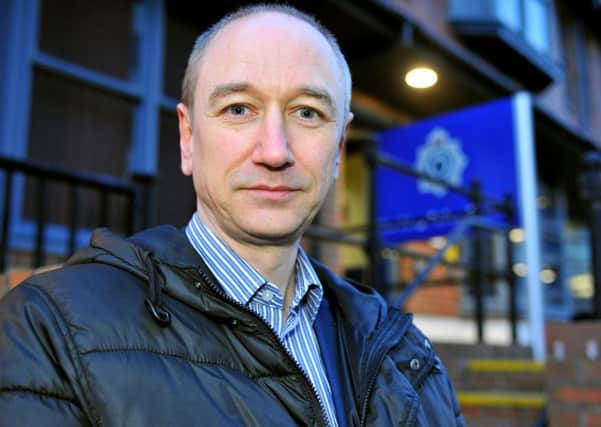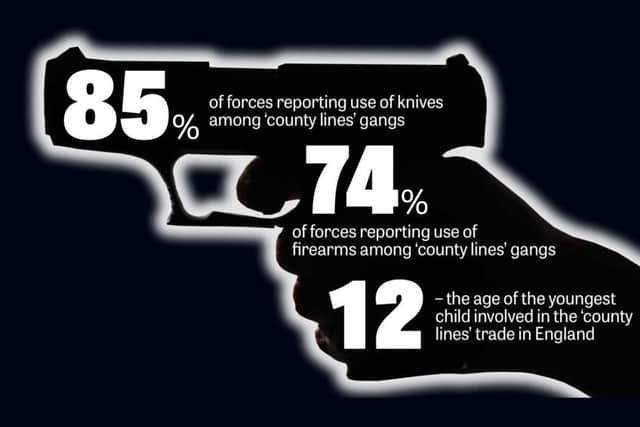Undercover policeman speaks out over Worthing drug crime


Neil Woods, who spent 14 years as an undercover agent for the East Midlands Serious Organised Crime Unit, said: “I would pick out a particular individual to befriend and get them to introduce me to connections and work my way up the ladder.”
Neil, 47, said he worked in cities like Birmingham, where he helped secure jail terms for six of the notorious Burger Bar Boys gang.
Advertisement
Hide AdAdvertisement
Hide AdNeil said: “In my experience Brighton, Worthing and Lancing [drug trade] is all controlled by the same organised crime groups.


“Worthing has got more than its proportion of street people and it is a very lucrative region for the drug trade.”
Neil said he saw drug dealing tactics reminiscent of county lines in operation in Adur and Worthing – but this was in 2005, not 2018.
Advertisement
Hide AdAdvertisement
Hide Ad“Where many years ago all dealers in Worthing would be from Worthing, when I was in Brighton it was actually gangs from London, Birmingham and Liverpool coming down every week with their supply.
“This is early county lines. The difference is they were bringing the drugs themselves.”
Neil said increased violence and county lines tactics over the past few years is a ‘natural response’ to police success.
“When I first started doing the job it was really straightforward.
Advertisement
Hide AdAdvertisement
Hide Ad“But suddenly the gangs knew there was a new tactic in town.
“The drug war is an escalation, an arms race.”
In particular the use of children is a direct response to police tactics, Neil said. He argued they are seen as ‘disposable’ and harder for undercover officers to investigate.
But now Neil believes the work that he did, and other undercover operatives continue to do, is causing more harm than good.
“I can trace a clear trail of how organised crime had got more violent over the period of time.”
Advertisement
Hide AdAdvertisement
Hide AdHe said he realised this when organised crime groups in Brighton and Worthing were targeting homeless people and threatening them into selling drugs for them.
“There was a fear among many drug users that there were casual murders going on.
“Whether or not there were casual murders, there was certainly casual violence and that was where I came to my realisation that the reason drug crime had got more and more violent was actually down to me, or rather people like me.
“In the 14 years the only thing that I did was make the lives of the vulnerable more unbearable.”
Advertisement
Hide AdAdvertisement
Hide AdNeil now campaigns for drug regulation: “At the moment the people who will decide what drugs are sold and who to are gangsters.
“A drug dealer is not bothered by ID, they only want to see a £10 note.”
Rules should vary for different drugs, Neil argued, with heroin only available by doctor’s prescription, while cannabis should be available to adults.
He added: “People under 18 should not be using cannabis, we should be protecting them from that drug. But what’s never talked about is that teenagers who get involved are recruited through the
[illegal] cannabis market.
Advertisement
Hide AdAdvertisement
Hide Ad“Not only should we be protecting them from the drug we should be protecting them from the influence of organised crime.”
Neil, who now lives in Hereford, has written a book about his experiences called Good Cop, Bad War. He works with LEAP UK, a global network of law enforcement figures who seek alternatives to current drug laws.